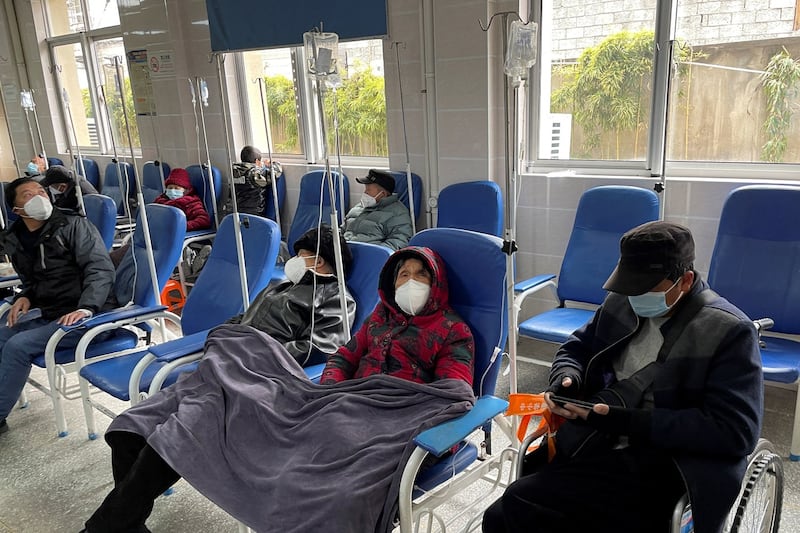The number of cremations carried out in the eastern Chinese province of Zhejiang saw a rise of nearly 73% in the first quarter of this year, compared with the same quarter in 2022, according to figures posted to the provincial civil affairs department's website that have since been deleted.
Just over 170,000 cremations were reported in the first three months of 2023, according to a cached copy of the page showing the latest provincial statistics on civil affairs. Earlier statistical reports indicated that 99,000 cremations took place in the same period last year and 88,300 in the first quarter of 2020.
World Health Organization chief Tedros Adhanom Ghebreyesus warned in January that China's COVID-19 death figures were likely to be "much higher" than the nationwide toll of 80,000 claimed by its government. This view is backed up by anecdotal evidence of round-the-clock cremations and long waits for funeral services reported by residents.
The Zhejiang statistics are significant because they show a massive spike in cremations immediately after the lifting of COVID-19 restrictions, as the virus ripped through China's population of 1.4 billion people.
Zhejiang is home to around 5% of China's population, and has a cremation rate of almost 100%, meaning that its cremation rate is fairly close to the death rate.
Nationwide estimate
If the figures there were extrapolated nationwide, they would suggest that some 3.4 million cremations took place from January through March, although not all regions and provinces have cremation rates as high as Zhejiang's.
Reuters cited epidemiologists as estimating the deaths in the first wave of COVID-19 at around 2 million.
Jiangsu-based current affairs commentator Zhang Jianping said the briefly revealed figures were in keeping with the scenes of overwhelmed crematoria seen during the first Omicron wave in China.

"Back then there were long queues for cremations in places like Beijing, Shanghai and Wuhan, which were much harder hit than Zhejiang," Zhang said. "Everyone knows the score, whether they make the figures public or not."
"Some people did simulations showing that China had more than 4 million deaths from COVID-19 at the time, and I think that's probably accurate, possibly even quite conservative," he said, describing the death toll as "astonishing."
"I understand why the authorities want to avoid this issue, because this data has a high degree of authenticity," he said.
‘Fabricating data’
Feng Chongyi, professor of political science at the University of Technology Sydney, said the figures gave the lie to the ruling Chinese Communist Party's claim that it had handled the pandemic well.
"The Chinese government has been concealing or fabricating data since the start of the pandemic," Feng said. "The political aim is to show the success of China's fight against the pandemic as a way to make Xi Jinping look good."
But he said the death figures have exposed the truth about what happened: the government's decision to suddenly end three years of stringent zero-COVID restrictions in December had devastating consequences for large numbers of people.
"The government suddenly lifted the restrictions without making any preparations, and a great many people died," Feng said.
Yang Haiying, a professor at Japan's Shizuoka University said similar coverups were seen after the mass deaths of the Great Famine of the late 1950s and after the political violence of the Cultural Revolution.
"The Chinese Communist Party just doesn't release real data," Yang said. "Researchers and the general public can only make estimates based on data that occasionally gets exposed."
He said the government typically seeks to conceal any figures that could point to wrongdoing by those in power.
"The Communist Party wants people to forget their own history ... and people know this but they daren't stand up and resist, thinking that it's all water under the bridge, and that it's best not to pursue it further, or ask political questions," Yang said.
Repeated calls to the Civil Affairs Bureau of the Zhejiang provincial government rang unanswered during office hours on Tuesday.
Translated by Luisetta Mudie. Edited by Malcolm Foster.
